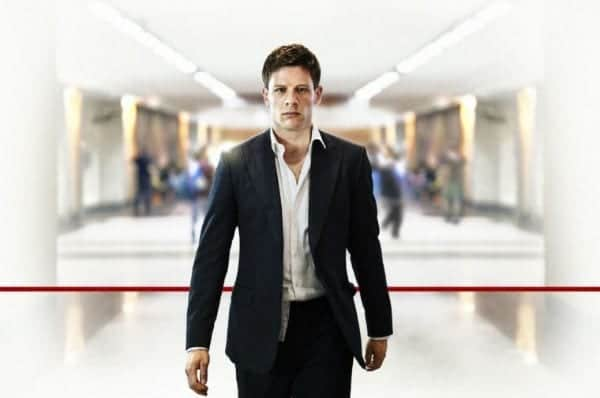How we made the music for McMafia
and live on Freeview channel 276
This article contains affiliate links. We may earn a small commission on items purchased through this article, but that does not affect our editorial judgement.
When Tom Hodge and Franz Kirmann sat down to write the music for gripping BBC One thriller McMafia, the one overriding emotion they wanted to convey was "tragedy".
Those who have already seen the globe-trotting, morally murky crime drama - which is about to start its US run next week - will know that they succeeded. And made the score rather tense and innovative, into the bargain.
Advertisement
Hide AdAdvertisement
Hide Ad"This was about how we could reinvent the danger, intrigue and ominousness [of a Hollywood thriller] with our own language," says Hodge, "and not resort to classic tropes."


The 'tragically beautiful' title theme
London banker Alex Godman's fall from grace all starts with the opening title sequence - and its distinctly hummable theme.
That initial music sets the tone for the entire saga. It's ominous, but also has a sense of sorrow running through it.
"It’s a simple eight note theme with a repeating phrase within it," explains Hodge. "I tried to find something robust enough both melodically and harmonically that we could carry, and the tragedy within it, through to wherever it was required."
Advertisement
Hide AdAdvertisement
Hide Ad

"It had to encapsulate the spirit of the show, but also had to be catchy enough and support repetition," adds Kirmann.
The composition that made it to the title sequence was actually demo number eight.
"We'd tried many routes and styles and nothing had landed," says Hodge.
"I chatted to [director] James Watkins on the phone about Mahler and something with real classical weight, and then sat down and tried to write something simple, something tragically beautiful and with real portent."
Advertisement
Hide AdAdvertisement
Hide Ad

Pushing the sonic boundaries
From the very get-go, the composers wanted to create a distinctive and original thriller score.
Producer Paul Ritchie was a fan of Hodge and Kirmann's music, and thought they could bring something "fresh" to the project.
The pair worked with musicians including the London Contemporary Orchestra, "trying to push the boundaries of how to use orchestral strings in a TV context".


Kirmann believes that the sheer volume of music needed for McMafia's eight episodes helped them in that bid for innovation.
Advertisement
Hide AdAdvertisement
Hide Ad"You just have to keep coming up with fresh ideas, interesting ways to deal with a scene," he notes. "I found it immensely rewarding to be able to really push the sonic boundaries."
Hodge's string writing for the London Contemporary Orchestra played an important early part in the process.
An ideas session with the ensemble gave the composers "a good thematic start". Then it was a matter of developing the themes, and "a multi-layered sound to reflect the multi-layered drama".
Kirmann describe's the pair's writing process as a "dialogue".
Advertisement
Hide AdAdvertisement
Hide Ad"Tom will improvise on the piano or write a string part, and then I will respond to that and process parts, add arrangements and send back to him. Or I will have a very electronic arrangement, and that would serve as a basis for Tom to write something - or even imagine something to push it further."


A global sound for a global series
Initial conversations between the composers after they had read the script, but not seen any footage or images, were "crucial", says Hodge.
"We were able to sit back a bit and digest the feeling of the series... and we came up with a few ideas then that actually made their way into the score."
"In early stages we talked about how to unify the global scale of the series, and how to link all these different locations around the world," says Kirmann.
Advertisement
Hide AdAdvertisement
Hide AdMcMafia takes in many glamorous places among the grittier elements (Photo: BBC)
"We came up with the idea of using ethnic instruments mixed with classical ones as well as concrete, industrial sounds and voices to create something that is hard to localise, so to speak.
"Another early conversation was the tragic element and the idea of fate, of the past haunting you, which we tried to convey with the music and the production as well, with the use of reverb and other tricks."
Eureka moments
Hodge describes the use of vocals in sections of the score, recorded with opera singer Kim Sheehan, as "a bit of a Eureka moment".